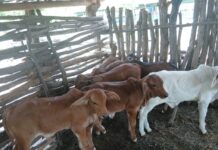World Animal Protection is deeply concerned about the recent reports of Namibia’s government decision to cull wildlife as part of efforts to address the severe drought affecting the country. The culling of over 700 wild animals, including 83 elephants, 300 zebras, 100 eland antelope, 100 blue wildebeest, 60 buffalo, 50 impala and 30 hippos, raises significant ethical and ecological concerns that warrant immediate attention. Short-term measures, such as wildlife culling, may not address the root causes of the crisis.
Edith Kabesiime, Wildlife Campaigns Manager at World Animal Protection said: “While we appreciate that the drought situation is a precarious one, culling animals to feed starving people is not a sustainable solution. Clearly, with increased risks posed by climate change, these droughts will continue to occur, perhaps more frequently, with even more severity. Namibia should be looking to put in place more innovative and sustainable solutions, such as irrigation fed agriculture rather than over relying on rains to ensure sustained food security for her people. Namibia is not only putting people in harm’s way but also endangering the whole world as culling hundreds of wild animals to feed people could easily create more problems than solutions.”
World Animal Protection urges the government of Namibia to tread carefully to avoid shifting perceptions of wildlife from sentient beings deserving protection to commodities. This approach risks turning communities away from being wildlife friendly, potentially encouraging poaching, game meat consumption and threatening the delicate balance between humans and nature. True sustainability lies in finding ways to support both the people and the planet without sacrificing one for the other.








